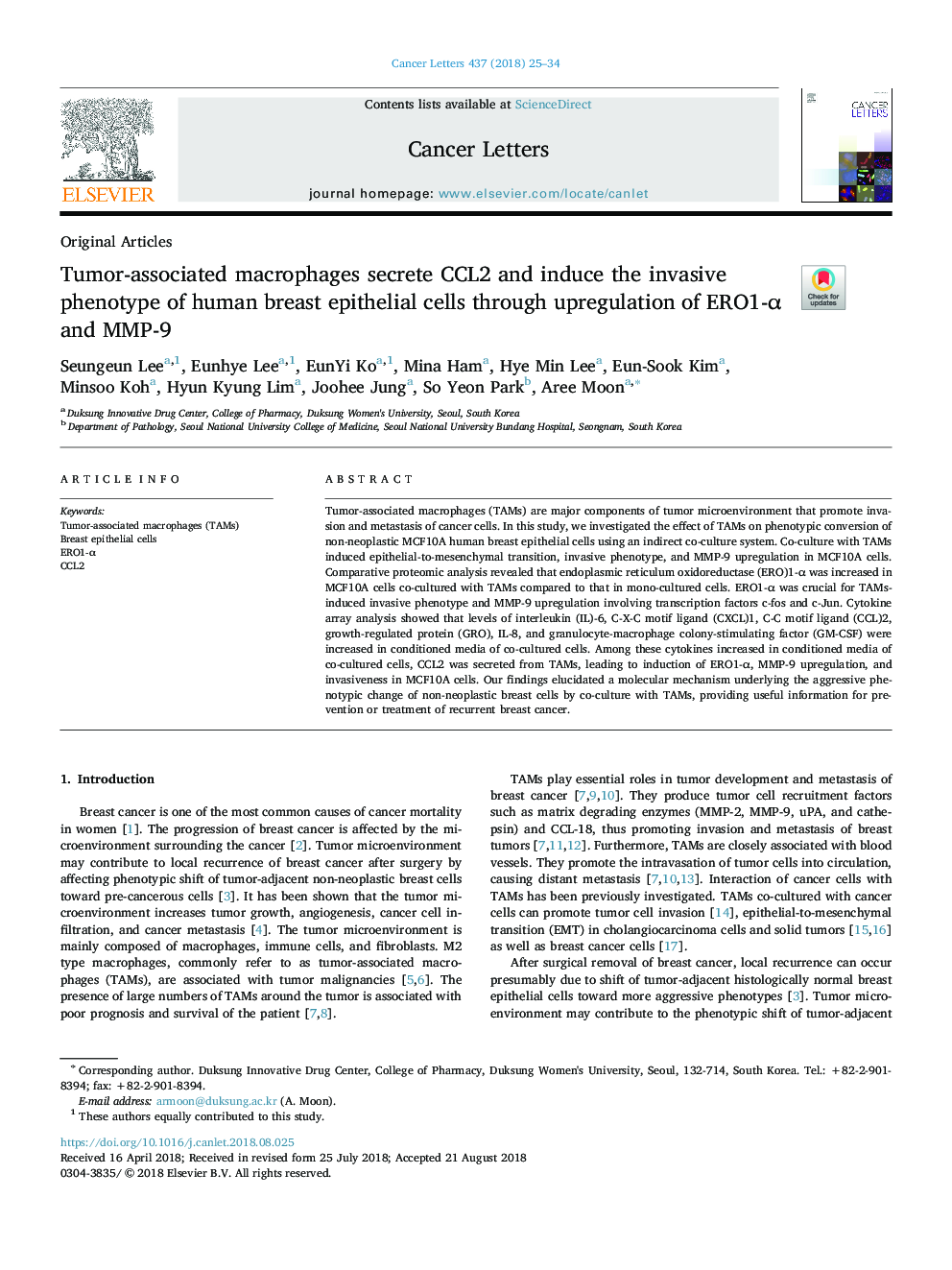| Article ID | Journal | Published Year | Pages | File Type |
|---|---|---|---|---|
| 8956110 | Cancer Letters | 2018 | 10 Pages |
Abstract
Tumor-associated macrophages (TAMs) are major components of tumor microenvironment that promote invasion and metastasis of cancer cells. In this study, we investigated the effect of TAMs on phenotypic conversion of non-neoplastic MCF10A human breast epithelial cells using an indirect co-culture system. Co-culture with TAMs induced epithelial-to-mesenchymal transition, invasive phenotype, and MMP-9 upregulation in MCF10A cells. Comparative proteomic analysis revealed that endoplasmic reticulum oxidoreductase (ERO)1-α was increased in MCF10A cells co-cultured with TAMs compared to that in mono-cultured cells. ERO1-α was crucial for TAMs-induced invasive phenotype and MMP-9 upregulation involving transcription factors c-fos and c-Jun. Cytokine array analysis showed that levels of interleukin (IL)-6, C-X-C motif ligand (CXCL)1, C-C motif ligand (CCL)2, growth-regulated protein (GRO), IL-8, and granulocyte-macrophage colony-stimulating factor (GM-CSF) were increased in conditioned media of co-cultured cells. Among these cytokines increased in conditioned media of co-cultured cells, CCL2 was secreted from TAMs, leading to induction of ERO1-α, MMP-9 upregulation, and invasiveness in MCF10A cells. Our findings elucidated a molecular mechanism underlying the aggressive phenotypic change of non-neoplastic breast cells by co-culture with TAMs, providing useful information for prevention or treatment of recurrent breast cancer.
Related Topics
Life Sciences
Biochemistry, Genetics and Molecular Biology
Cancer Research
Authors
Seungeun Lee, Eunhye Lee, EunYi Ko, Mina Ham, Hye Min Lee, Eun-Sook Kim, Minsoo Koh, Hyun Kyung Lim, Joohee Jung, So Yeon Park, Aree Moon,
